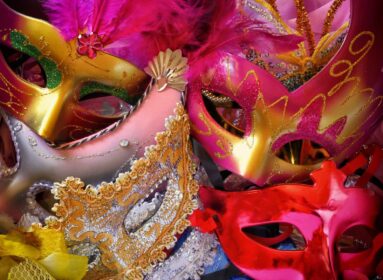This month we will celebrate Pesach. Right after Pesach we will commemorate Yom HaShoah, Yom Hazikron for Israel’s fallen soldiers, and Yom Ha’Atzmaut.
This time between Pesach and Yom Ha’Atzmaut is known in Israel as the ‘Month of Memory’. In less then 25 days we will relive our people’s journey of 2000 years in the Diaspora. We will walk with our fathers in the desert as they are being liberated from slavery and become a nation. From there we’ll go back to the death camps of Nazi Germany and remember our six million brothers and sisters who were systematically murdered in the Holocaust. Finally, our story will lead us to Israel as we honor the fallen soldiers who gave their lives protecting our land and of course the establishment of Israel.
The memory of our ancestors will mix with living memories of our grandparents from the death camps. Figures like Mordechai Anielewicz, leader of the Warsaw Ghetto uprising, will stand before our eyes alongside Roei Klein, who jumped on a grenade to save his soldiers in the Second Lebanon War. Leaders like Moses will be mixed with the memories of David Ben-Gorion and Menachem Begin, who were Israel’s greatest leaders.
Here they come, the national days, painted in blue and white, standing out against the backdrop of bereavement and ash. It is during these days when my Jewish identity and my Israeli identity become one.
Memorial days are very common in the Israeli calendar. In addition to the above, we commemorate the Tenth of Tevet fast (the general Kaddish day), International Holocaust Memorial Day on January 27, Tisha B’Av (marking the destruction of the Temple), the Fast of Esther, the Fast of Gedaliah and many more.
But did we ever stop to wonder why it is that the memorial theme plays such a significant role in our Jewish identity? Why is it that Israel and the Jews are so busy with their past? Why can’t we just forget our past and move on? Let bygones be bygones. Get over it and move towards a better, brighter future. Are we so busy with our past that we can’t lift our heads and look forward?
In the Haggadah we read the verse “Pour out Your wrath upon those nations that do not know you.” Is that even relevant today, when we want to find peace and rest with the Palestinians? If we perpetuate the horrors of the Holocaust in museums and memorial days, how can we dream of better and peaceful times? Can we give up a piece of our land for the benefit of the peace process, when all we remember is that our best friend fell in the line of duty while fighting to defend it?
There is a thin and fragile line between living in the past and remembering where you came from. Yigal Alon, the first Palmach commander once said, “a nation who doesn’t know its past, its present is poor and its future will forever be uncertain.” If we won’t read the Haggadah and follow the mitzvah of “And you shall tell your son,” we will forget the idea, that freedom is both individual and collective. We won’t know how to treat our minorities because we will forget we were slaves once too.
We commemorate the Holocaust not just because it happened to our people, but to remind the world the important lessons we haven’t learned yet and to keep leading and educating so that the remembrance of the Holocaust will stay important not just for Jews, but for all mankind. We can’t forget our brothers and friends that fell while fighting and defending our land because they are the “silver platter” on which the Jewish state was given.
From our slavery in Egypt to the last fallen IDF soldier, it is up to us to remember our history and the stories that shaped us as people and as a nation. This is our heritage; this is who we are. Forgetting is not an option.
-

- Adam Weiss
Adam Weiss is the Israeli Shaliach for the Stamford Jewish Community Center. He will be returning to his home in Israel this summer.







 Southern New England Jewish Ledger
Southern New England Jewish Ledger














